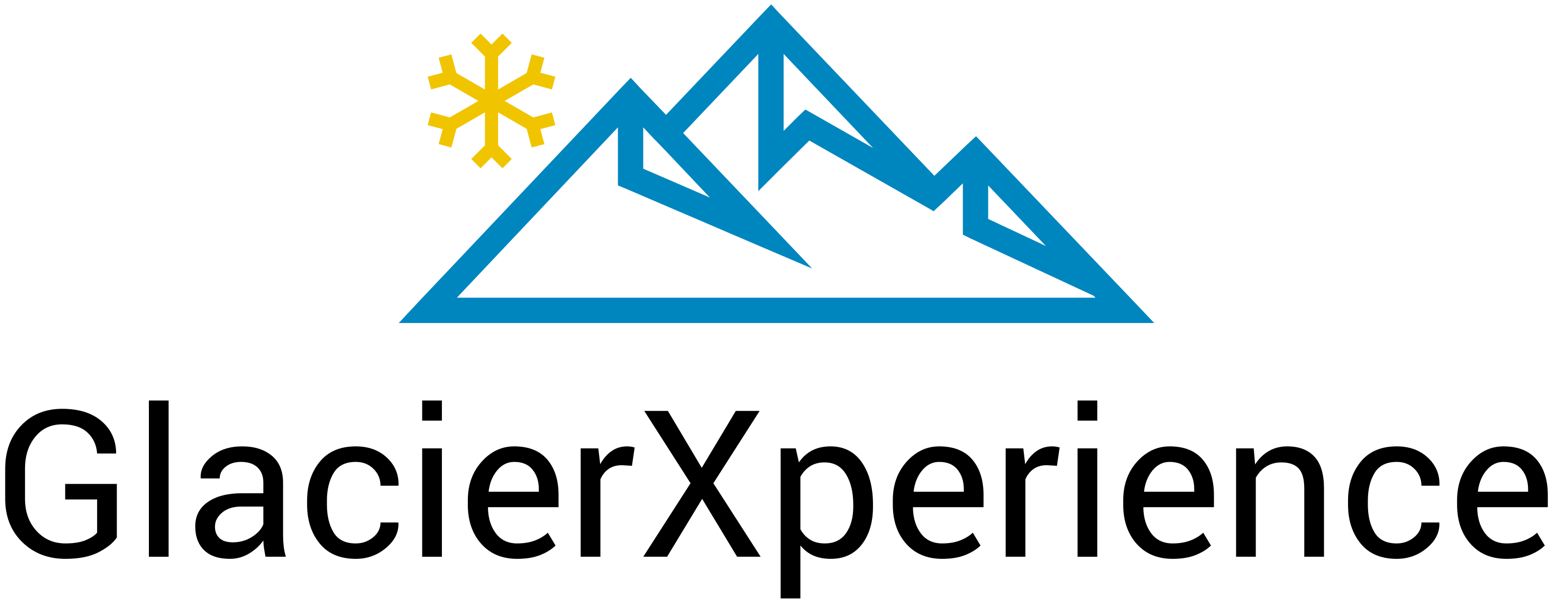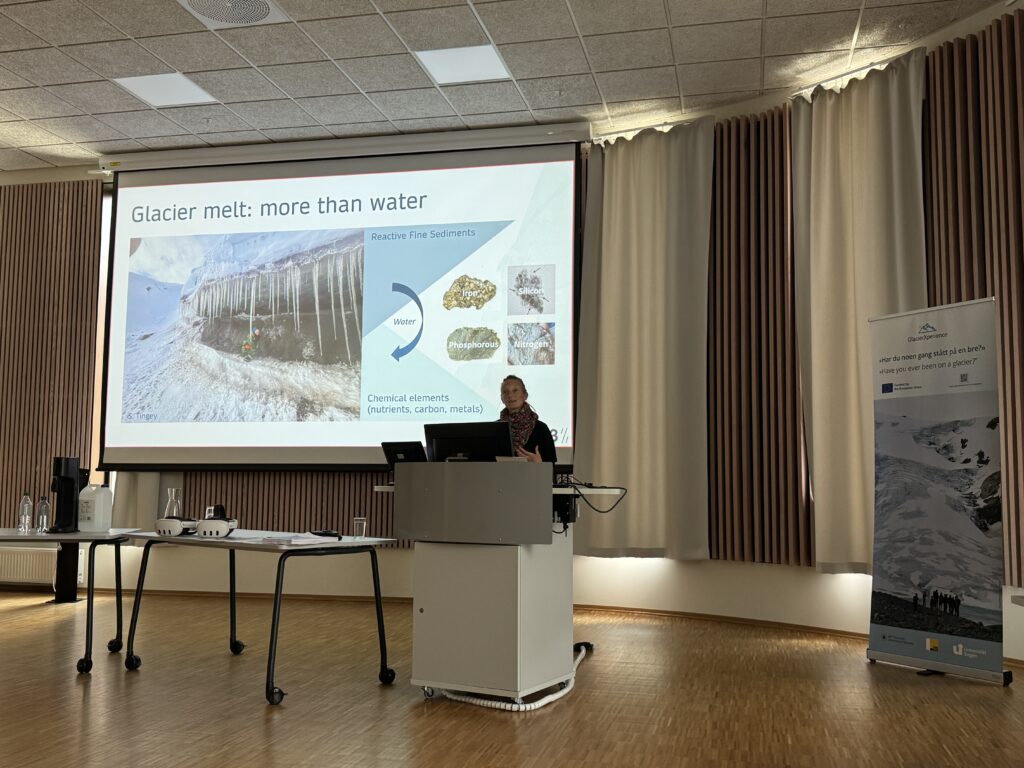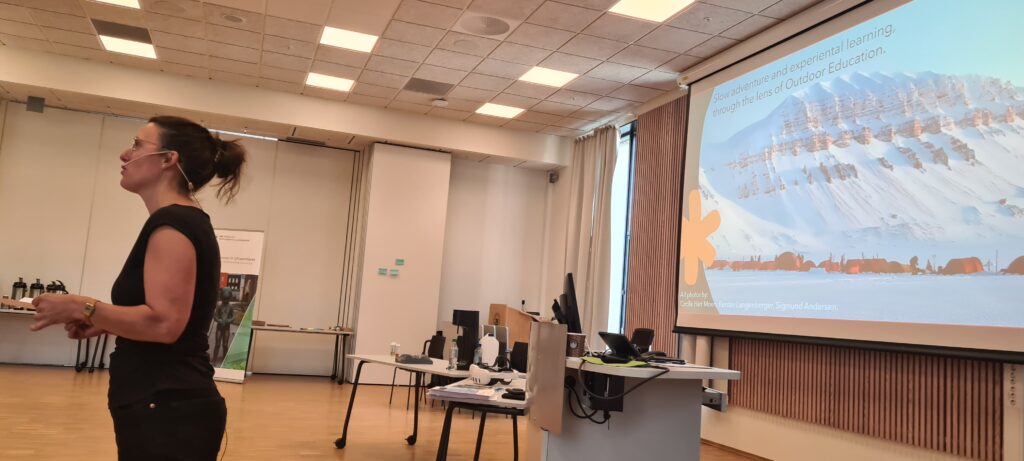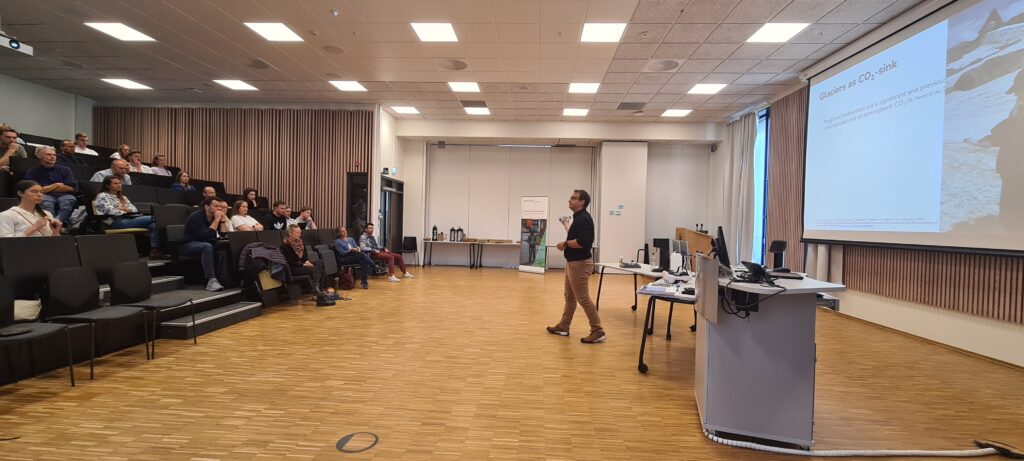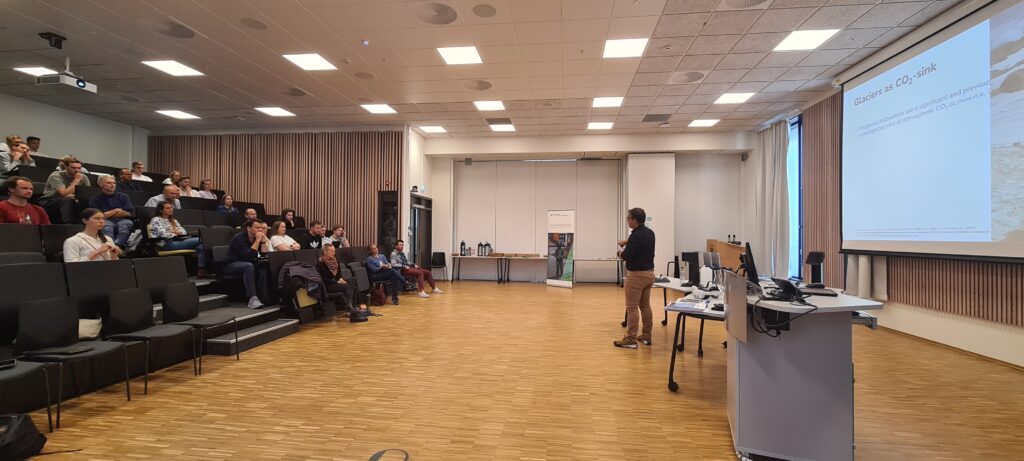The seminar titled “Glacier Education: Glaciers as Learning Arenas” was successfully held at the Institute for education at the Artic University in Tromsø. All together, experts, educators, and students explored and discussed the multifaceted role of glaciers in education and climate science. The event provided an engaging platform for participants to delve into the significance of glaciers, both as crucial components of our climate system and as unique educational resources.
Exploring the Importance of Glaciers in Education
The seminar highlighted how glaciers, despite their crucial role in the environment, have been largely underrepresented in traditional educational settings. The event aimed to address this gap by presenting a range of interdisciplinary approaches to glacier education. The accessible Steindalsbreen glacier in the Lyngen Alps, near Tromsø, served as a central focus for the discussions, demonstrating how glaciers can be utilized effectively as learning arenas.
Key Highlights from the Seminar
-
Introduction – Glaciers as an Interdisciplinary Learning Arena
- Jan Höper, UiT – Department of Education
The seminar opened with an introduction by Jan Höper, who emphasized the interdisciplinary potential of glaciers as educational tools. He outlined how glaciers can serve as a gateway to understanding complex scientific concepts, from climate change to geology.
- Jan Höper, UiT – Department of Education
-
What May Happen if Glaciers Disappear
- Jemma Wadham, Director of iC3 – Centre for Ice, Cryosphere, Carbon, and Climate
Jemma Wadham delivered a compelling presentation on the consequences of glacier retreat, shedding light on the environmental and societal impacts. She also discussed her project METALLICA, which investigates the release of heavy metals during glacier melt, offering a stark reminder of the far-reaching effects of climate change.
- Jemma Wadham, Director of iC3 – Centre for Ice, Cryosphere, Carbon, and Climate
-
Erasmus Project GlacierXperience – Virtual and Physical Glacier Education
- Volker Heck, University of Siegen; Jan Höper, UiT; Philipp Spitzer, University of Graz
This segment showcased the innovative GlacierXperience project, which brings the world of glaciers into the classroom through immersive virtual environments and outdoor laboratories. The project demonstrated how digital and hands-on learning can be combined to provide students with a deeper understanding of glaciers.
- Volker Heck, University of Siegen; Jan Höper, UiT; Philipp Spitzer, University of Graz
-
Modeling the Consequences: Experiments for the Classroom
- Philipp Spitzer, University of Graz, Center for Chemistry Education
Philipp Spitzer presented practical experiments designed for classroom settings, illustrating how complex phenomena like the increased heavy metal content in mountain streams due to glacier melting can be modeled and understood by students.
- Philipp Spitzer, University of Graz, Center for Chemistry Education
-
What Happens When We Travel in Glacier Landscapes for Multiday Excursions?
- Cecilie Harr Moen, UiT – Department of Education
Drawing from her extensive experience in outdoor education, Cecilie Harr Moen offered insights into the educational value of multiday excursions in glacier landscapes. She highlighted how such experiences can serve as powerful learning opportunities, blending practical skills with adventure.
- Cecilie Harr Moen, UiT – Department of Education
-
Panel Debate: Integrating Glaciers into Education
- Moderated by Jan Höper
The seminar concluded with a dynamic panel debate moderated by Jan Höper. Experts discussed strategies for integrating glaciers into school and higher education curricula, emphasizing the need for interdisciplinary approaches to make glacier education more accessible and impactful.
- Moderated by Jan Höper
A Successful Gathering of Minds
The seminar was met with positive feedback from participants, who appreciated the diverse range of perspectives and the depth of knowledge shared by the speakers. The event not only raised awareness about the importance of glaciers in our environment but also provided concrete examples of how they can be effectively utilized as learning arenas.
With presentations and discussions that spanned scientific research, virtual learning, hands-on experiments, and outdoor education, the seminar successfully demonstrated the interdisciplinary potential of glaciers in education. Attendees left with a renewed understanding of glaciers’ role in our climate system and the educational opportunities they present.
For those who were unable to attend, the seminar was also accessible via Teams, ensuring a wider reach and engagement with this critical topic.
